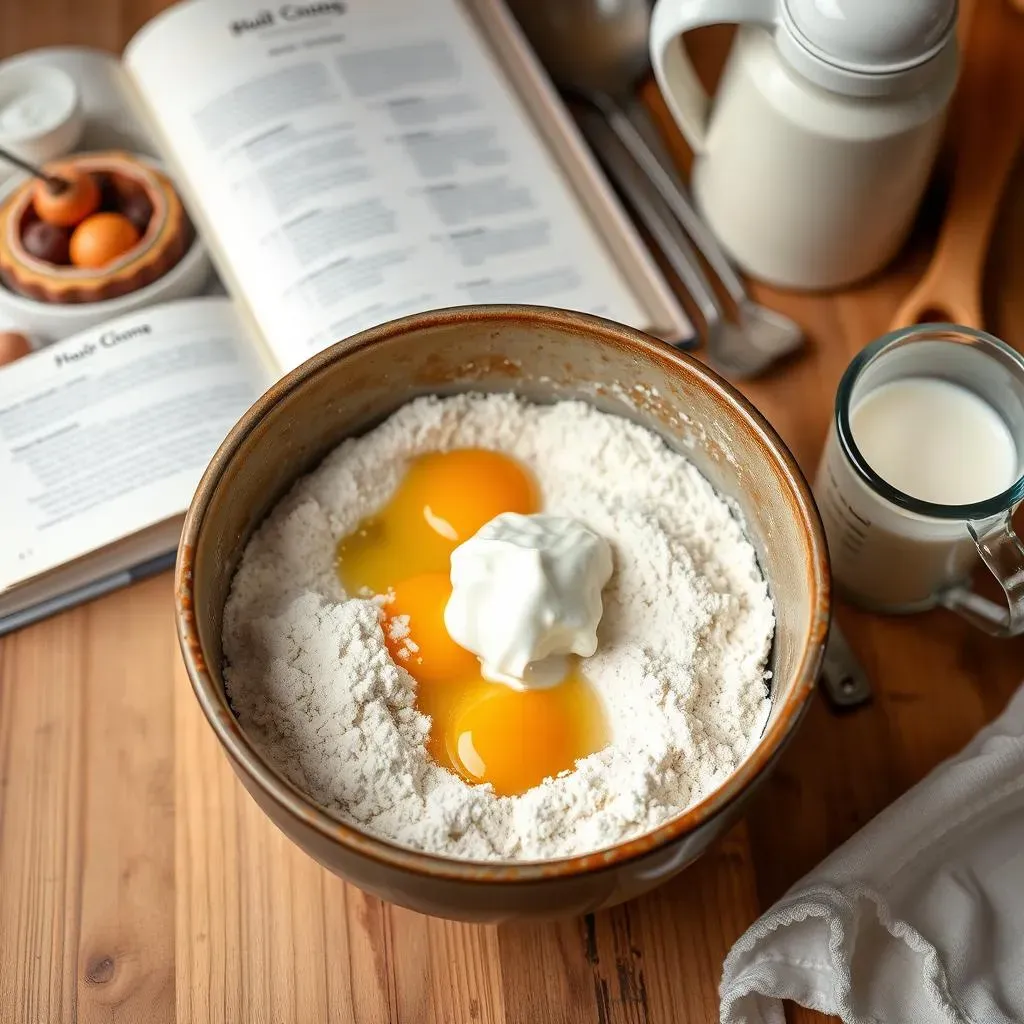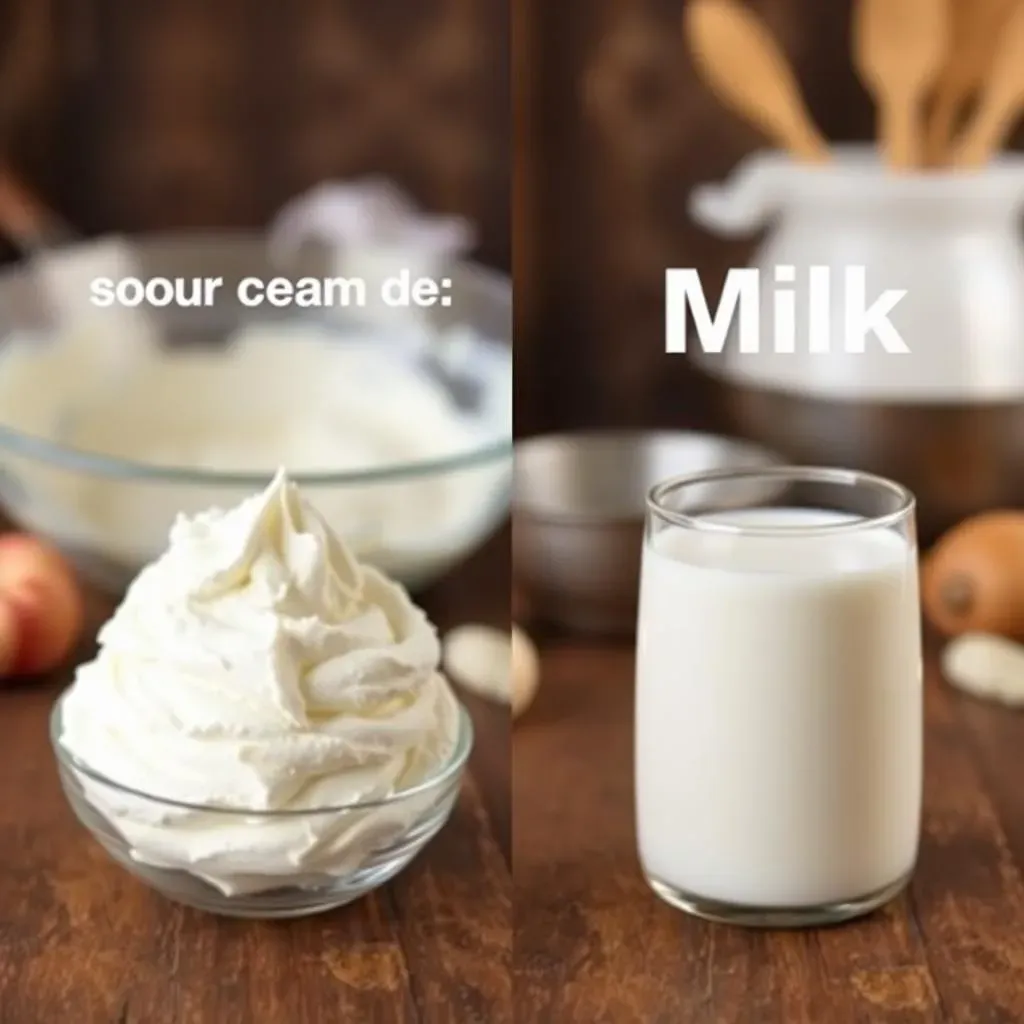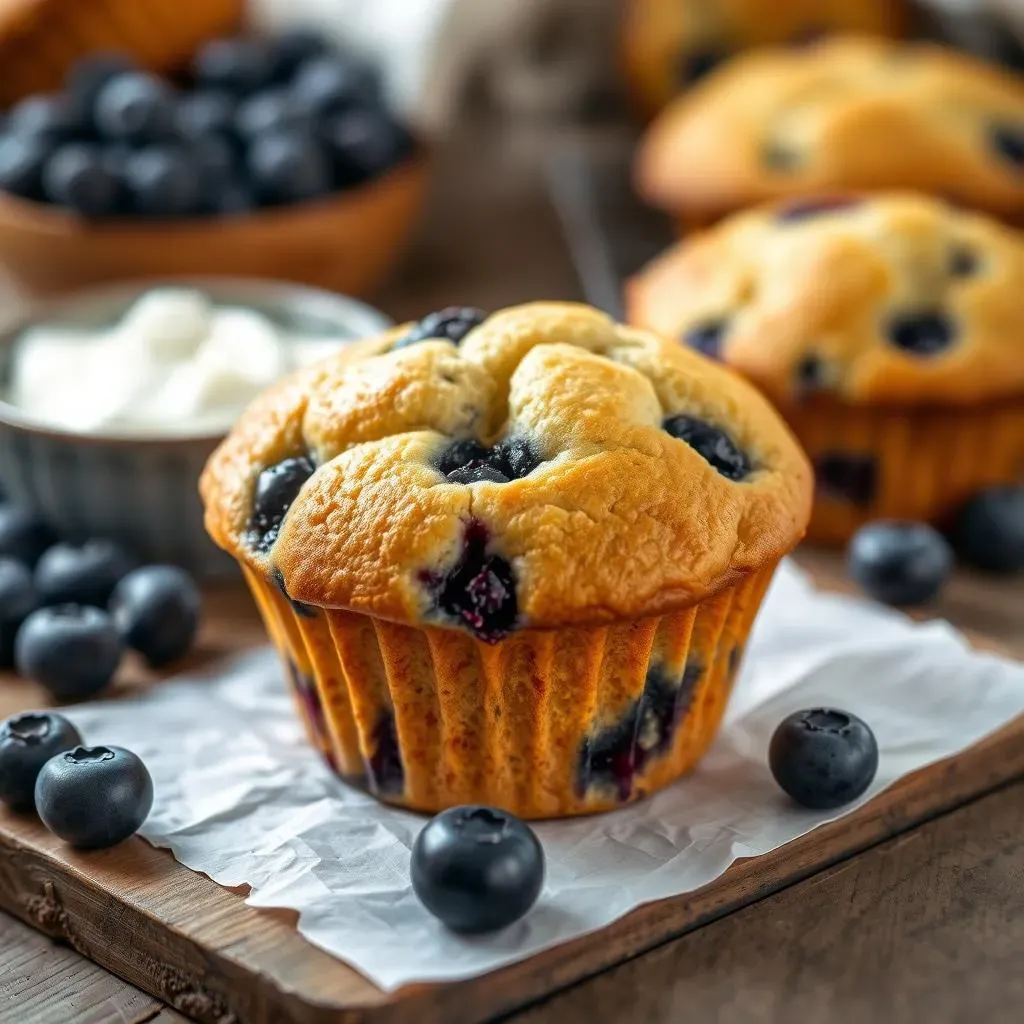Table of Contents
Ever stared blankly at a recipe, realizing you're out of milk? The question pops into your head: can you substitute sour cream for milk? It's a baking dilemma many face, a culinary conundrum that demands a solution. This article tackles that very question head-on, exploring the intriguing world of milk substitutes and uncovering when – and more importantly, *why* – sour cream might just be the perfect stand-in. We'll dissect the differences between sour cream and milk, comparing their textures, flavors, and fat content. We'll explore how these differences impact the final product, examining specific recipes where this substitution shines and others where it might fall flat. Prepare to unlock a new level of baking flexibility, learning when a simple swap can save the day (or your cake!) and when it's best to stick to the original recipe. Let's dive into the delicious details and discover the truth behind this common baking question: can you substitute sour cream for milk?
Can You Substitute Sour Cream for Milk in Baking?

Can You Substitute Sour Cream for Milk in Baking?
The Straightforward Answer: Sometimes
The short answer is yes, you *can* often substitute sour cream for milk in baking, but it's not a simple one-to-one swap and the results depend heavily on the recipe. Sour cream is thicker and tangier than milk, impacting both the texture and flavor of your baked goods. Think of it like this: milk adds moisture and a neutral base, while sour cream adds richness, creaminess, and a distinct tang. That tang can be delightful in some recipes (like muffins or quick breads), but disastrous in others (like angel food cake).
The success of your substitution hinges on understanding these differences and adjusting accordingly. You'll often need to make compensating changes to the recipe, such as reducing other liquids or adjusting leavening agents. Don't just blindly swap; think strategically!
Ingredient | Milk's Role | Sour Cream's Impact |
|---|---|---|
Moisture | Provides hydration to the batter | Adds richness and creaminess, but less overall moisture |
Fat | Contributes to texture and mouthfeel | Adds significant fat, potentially making the baked good denser |
Flavor | Neutral flavor profile | Adds a distinct tangy flavor |
Factors Influencing Successful Substitution
Several factors determine whether sour cream will work as a milk substitute in your recipe. The amount of milk called for is crucial. Small amounts (less than ¼ cup) are often easily replaced with sour cream without significant changes. Larger amounts may require adjustments to other ingredients to maintain the correct consistency and moisture level. The type of baked good also matters. Recipes that already incorporate other acidic ingredients or have a naturally dense texture (like muffins or cornbread) tend to tolerate sour cream substitutions better than delicate cakes or cookies.
Consider the recipe's other ingredients. Recipes high in sugar or fat may handle the extra richness from sour cream more easily. Also, think about the desired texture and flavor profile. If you want a lighter, fluffier cake, sour cream is probably not the best choice. But if you're aiming for a richer, moister, slightly tangy result, then sour cream might be a surprisingly good option. Experimentation is key!
- Amount of milk in the original recipe
- Type of baked good (cakes, muffins, breads, etc.)
- Other ingredients (sugar, fat, etc.)
- Desired texture and flavor profile
Tips for Successful Substitution
When substituting sour cream for milk, start by using a 1:1 ratio. However, you may need to reduce the amount of other liquids in the recipe, especially water or other milk alternatives. Reducing the amount of baking powder might also be necessary because the acidity of sour cream can affect the rising action. You might also want to consider adding a pinch of sugar to balance out the sourness. Always start with a small batch or test recipe to see how the sour cream affects the texture and flavor before committing to a larger quantity.
Remember, baking is a science as well as an art. Don't be afraid to experiment and adjust. Keeping detailed notes of your substitutions and results can help you refine your technique and create your own delicious variations. Happy baking!
Sour Cream vs. Milk: A Taste and Texture Comparison When Substituting

Sour Cream vs. Milk: A Taste and Texture Comparison When Substituting
The Flavor Face-Off: Tangy vs. Neutral
Let's talk taste! Milk is pretty much a blank canvas, flavor-wise. It provides moisture and a neutral base, letting the other ingredients shine. Sour cream, on the other hand, brings a distinct tang to the party. This tang comes from the lactic acid bacteria used in its production. It's this tang that can either elevate a recipe or completely throw it off balance, depending on what you're baking.
Think of it like this: milk is a quiet supporting actor, while sour cream is a bold character with a strong personality. In a recipe where you want the other flavors to lead, milk's your best bet. But if you're looking for a subtle acidic note to complement other flavors, sour cream might be exactly what you need. The key is understanding your recipe and what kind of flavor profile you're aiming for.
Ingredient | Flavor Profile | Impact on Baked Goods |
|---|---|---|
Milk | Neutral | Allows other flavors to shine |
Sour Cream | Tangy, slightly acidic | Can add depth or overpower other flavors |
Texture Tango: Creamy vs. Thin
Now let's discuss texture. Milk is thin and watery, contributing to a lighter, airier texture in baked goods. Sour cream, however, is thick and creamy, adding richness and density. This difference in consistency directly impacts the final product. A cake made with milk will likely be lighter and fluffier than one made with sour cream, which will be richer and potentially a bit more dense.
The higher fat content in sour cream also plays a role. This fat contributes to a moist, tender crumb, which is great in muffins or quick breads. However, too much fat can make a cake heavy and gummy. Understanding this textural difference is crucial in determining whether sour cream is a suitable substitute for milk in your chosen recipe. Again, it's all about the balance and the desired outcome.
- Milk: Thin, watery, contributes to lighter texture
- Sour Cream: Thick, creamy, adds richness and density
- Fat Content: Sour cream's higher fat content impacts moisture and crumb
Recipes Where Substituting Sour Cream for Milk Works (and Where It Doesn't)

Recipes Where Substituting Sour Cream for Milk Works (and Where It Doesn't)
When Sour Cream Triumphs: Recipes Made for Tangy Richness
Some recipes actually *benefit* from the richness and tang of sour cream. Think moist, dense baked goods where a little extra fat and acidity enhance the flavor profile. Quick breads, muffins, and cornbread often tolerate – and even crave – the creamy texture and subtle tang that sour cream brings. The added fat contributes to a tender crumb, and the acidity can create a delightful contrast against sweeter ingredients. In these cases, a simple 1:1 substitution often works beautifully, resulting in a richer, more flavorful final product. You might even find that the sour cream enhances the overall taste experience.
For example, imagine a blueberry muffin recipe. The traditional recipe uses milk for moisture. However, substituting sour cream adds a lovely tang that complements the sweetness of the blueberries. The extra fat results in a more tender, moist crumb. The sour cream provides a delightful counterpoint to the sweetness of the blueberries, creating a more complex and satisfying flavor profile. This is a perfect example of a scenario where sour cream is not just a suitable substitute, but an improvement!
Recipe Type | Why Sour Cream Works | Potential Adjustments |
|---|---|---|
Muffins | Enhances moisture and adds tangy flavor | Reduce other liquids slightly |
Cornbread | Creates a richer, more tender crumb | None usually needed |
Quick Breads | Adds density and complements spices | Reduce baking powder slightly |
When Sour Cream Fails: Recipes Needing a Neutral Base
On the other hand, there are recipes where sour cream is a definite no-no. Delicate cakes, particularly angel food cake or sponge cake, rely on a neutral base and airy texture. The added fat and acidity of sour cream would dramatically alter the desired outcome, resulting in a dense, heavy, and likely unappetizing result. In these recipes, the delicate balance of ingredients is crucial, and any deviation can lead to failure. It's best to stick to the original recipe in these cases, as attempting a substitution might ruin your masterpiece.
Similarly, recipes where the milk is a key component in creating a specific texture or lightness, such as in some types of cookies, would also not benefit from a sour cream substitution. Think of delicate shortbread cookies; the milk contributes to a tender, crumbly texture that would be significantly altered by the addition of sour cream's fat and acidity. The result would be a dense and heavy cookie that is far from the intended crispness.
- Angel food cake
- Sponge cake
- Delicate cookies (shortbread, etc.)
- Recipes relying on precise ingredient ratios